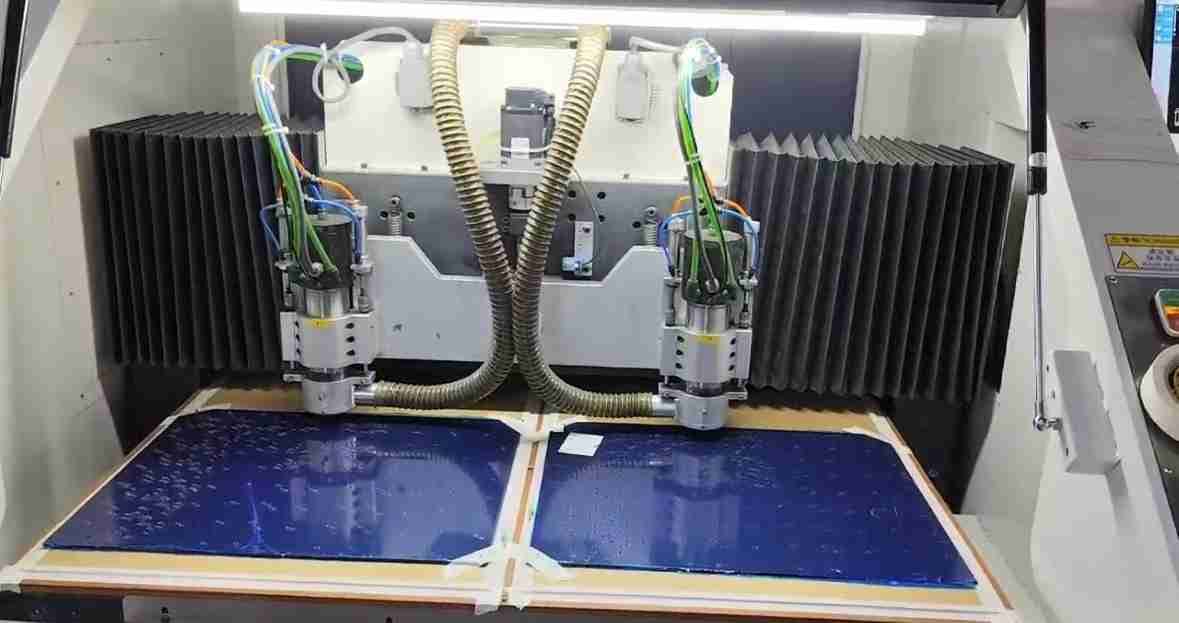
Carbon fiber tubing combines remarkable structural strength with minimal mass, fitting for contexts prioritizing endurance and lighter components
Constructed by bonding carbon fiber reinforcements into a cured resin matrix, the tubes become a high-performance composite
Strategically aligned carbon fibers offer high tensile strength and rigidity, paired with a lightweight resin that trims overall mass
This fusion of mechanical advantages supports designing components that are solid in performance and low in weight
Carbon fiber tubing is integrated into aircraft, vehicles, sports equipment and medical implements
Applied in aircraft, these tubes cut weight in fuselages and wing structures, thereby improving fuel consumption and flight characteristics
In automotive design, these tubes bolster suspension systems and chassis structures to improve handling while minimizing weight
Carbon fiber square-section tubes optimized for strength and assembly precision
In engineering fields that require minimal weight and maximum structural performance, square carbon fiber tubes excel
Manufactured with precision, these square tubes deliver robust mechanical traits and adaptable configuration options
Constructed by embedding woven or unidirectional fibers in resin, these tubes show notable resilience to compressive and tensile stresses
Their rigid nature enables square carbon fiber tubes to perform reliably in integrity-critical structural uses
Used for aerospace sections, vehicle chassis reinforcements and high-performance sports equipment, these tubes ensure dependable performance under stress
Also, their minimal mass supports better fuel savings and more efficient system operation
- In addition, tight dimensional tolerances simplify integration into complex systems and reduce adjustment-related costs
- Thus, industries that target advanced performance and efficiency increasingly rely on square carbon fiber tubes
Custom rectangular carbon fiber tubes delivering tailored strength and performance
With exceptional strength relative to weight and notable stiffness, carbon fiber meets the needs of high-demand applications
In particular, rectangular and prismatic carbon fiber tubes achieve outstanding results due to their optimized geometries
These tubes are custom-engineerable to exact needs, delivering targeted structural integrity and load performance
For aerospace components, sporting gear or industrial applications, suppliers can deliver precisely engineered rectangular carbon fiber tubes
The adaptability of rectangular carbon fiber tubes fosters development of novel solutions that elevate performance and functionality
Carbon fiber plate materials built for high stiffness and impact endurance
High stiffness characterizes carbon fiber plates, qualifying them for heavy-duty load applications
Constructed with carbon fiber reinforcements within a polymer matrix, these plates show superior resistance to bending and shape change
Impact durability results from the fibers’ energy-absorbing behavior, enabling plates to endure shocks without failing
Next-generation composite assemblies using carbon fiber tubes and plates for superior outcomes
Advanced applications often choose CFRP tubes and plates for their high mechanical performance and favorable strength-to-weight balance
Their lightweight yet robust nature suits diverse uses, from aerospace and automotive sectors to sporting and specialized consumer products
Manufacturing techniques allow these composites to be formed into complex parts that retain high stiffness and long-term durability
Furthermore, manufacturing advancements have enhanced affordability and scalability, making these materials more accessible
Adopting carbon fiber plates and tubes brings advantages like superior mechanical performance with less mass than old materials
Such composites resist corrosion and fatigue, enhancing durability and dependable service life in challenging environments
The exceptional attributes of carbon fiber composites continue to drive innovation and shape future engineering directions
Examining how carbon fiber tubes and plates are applied across industries
Robust carbon fiber tubes and plates have earned widespread traction and recognition in a variety of sectors
Excellent ratios of strength to weight and mechanical performance qualify them for a broad array of applications
Common deployments are in aerospace, automotive and construction sectors for manufacturing structural components needing durability and strength
In the sports sector these composites are commonly used for frames, shafts and racquets to deliver competitive performance advantages
In healthcare carbon fiber tubes and plates are used for prostheses, surgical equipment and assistive medical devices
Lightweighting strategies using carbon fiber tubes, plates and related components
Carbon fiber composites are revolutionizing industries by enabling substantial weight reductions while preserving structural performance
Common tube applications include lightweight, stiff structures such as bicycle frames and turbine blades
Carbon fiber plates are applied in aircraft and spacecraft elements to deliver high stiffness and reliable structural performance
New research and fabrication methods enhancing carbon fiber utility
Carbon fiber serves as a materials science phenomenon prized for high strength and toughness
This fusion of thin fiber reinforcements and polymer matrix yields the lightweight, high-strength properties of carbon fiber
Applications are growing across aerospace and automotive sectors where weight reduction improves fuel efficiency and performance
Automakers incorporate carbon fiber to make lighter and stronger components that improve handling dynamics and crash performance
Carbon fiber structures offer adaptable solutions across both aerospace and automotive industries
By delivering exceptional strength per unit weight, carbon fiber composites have altered aerospace and automotive engineering
Their lightness enables the production of high-performance vehicles and aircraft that are both fuel-efficient and durable
Automotive uses include bodywork, chassis reinforcements and selective frame elements where carbon fiber reduces mass and enhances dynamics
Carbon fiber tubes and plates drive continued progress across engineering disciplines
Carbon fiber tubes and plates have transformed numerous industries by delivering outstanding strength-to-weight ratios
In fields demanding performance and weight reduction—such as aerospace, automotive and healthcare—carbon fiber components are commonly used
In aircraft applications, carbon fiber parts help reduce fuel needs and enhance aerodynamics
In the auto industry, carbon fiber contributes to lighter builds that accelerate better and handle more responsively
- To maximize benefits, designers must understand carbon fiber mechanics, manufacturing restrictions and the trade-offs involved Proper leveraging of carbon fiber involves understanding its performance attributes, manufacturing constraints and trade-offs in design Leveraging it successfully requires a detailed understanding of material behavior, fabrication constraints and design trade-offs To harness carbon fiber well you must grasp its mechanical behavior, production constraints and carbon fiber tubes relevant design trade-offs
- Outlook is bright for carbon fiber tubes and plates as their uses continue to expand across industries
- More research and development will advance properties and expand practical uses
- Accordingly, carbon fiber’s importance in upcoming engineering and manufacturing applications is poised to increase
Step-by-step guide to achieving peak results with carbon fiber components
Its notable strength-per-weight and stiffness traits position carbon fiber as a leading material to drive performance improvements
The guide presents properties, applications and pragmatic integration strategies for effective carbon fiber use
Use cases span automotive, aerospace, sports and electronics where carbon fiber adds meaningful performance advantages
Proper leveraging of carbon fiber involves understanding its performance attributes, manufacturing constraints and trade-offs in design
A deep dive into the material properties that make carbon fiber so unique.A comprehensive look at its exceptional strength-to-weight ratio and stiffness.